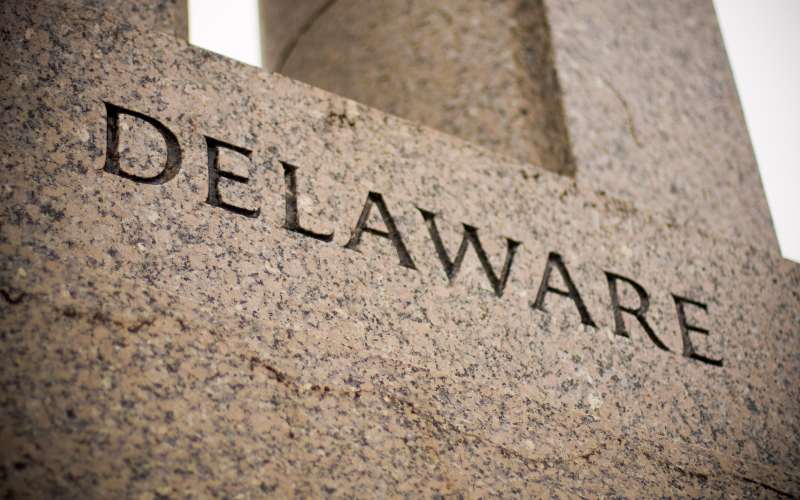Last Updated on March 18, 2024 by Kelvin Nielsen
If you’re a landlord or a tenant in Delaware, you may be wondering about the state’s landlord-tenant laws and whether Delaware is a landlord-friendly state.
In this article, we’ll take a closer look at Delaware’s landlord-tenant laws and explore whether the state is landlord-friendly or tenant-friendly.
Delaware’s landlord-tenant laws are outlined in Title 25 of the Delaware Code, which covers everything from rental agreements to eviction procedures. As a landlord or a tenant, it’s important to be familiar with these laws to understand your rights and responsibilities.
While Delaware’s laws are generally fair and balanced, there are some aspects that may be more favorable to landlords or tenants, depending on the situation.
So, is Delaware a landlord-friendly state? The answer is not a simple yes or no. The following is everything you should know in this regard!
Key Takeaways
- Delaware’s landlord-tenant laws are outlined in Title 25 of the Delaware Code.
- Delaware’s laws provide both landlords and tenants with certain protections and rights.
- Whether Delaware is a landlord-friendly state depends on the specific situation and aspect of the law in question.
Understanding Delaware’s Landlord-Tenant Law
Overview of Landlord-Tenant Law
If you are a landlord or a tenant in Delaware, it is important to understand the state’s landlord-tenant law. The law outlines the rights and responsibilities of both landlords and tenants and provides a framework for resolving disputes.
One of the key features of Delaware’s landlord-tenant law is that it is relatively balanced. While the law provides landlords with the ability to evict tenants who violate the terms of their lease, it also provides tenants with certain protections against eviction and other forms of landlord abuse.
Specific Provisions
Delaware’s landlord-tenant law covers a wide range of issues, including security deposits, rent increases, and eviction procedures. Here are some of the key provisions of the law:
- Security Deposits: Landlords in Delaware are allowed to charge tenants a security deposit, but the amount cannot exceed one month’s rent. The landlord must also provide the tenant with a written receipt for the deposit.
- Rent Increases: Landlords in Delaware are allowed to increase the rent, but they must provide the tenant with at least 60 days’ notice before doing so.
- Eviction Procedures: If a tenant violates the terms of their lease, the landlord can begin the eviction process by serving the tenant with a notice to quit. If the tenant fails to vacate the property, the landlord can then file an eviction lawsuit in court.
Overall, Delaware’s landlord-tenant law is designed to protect the rights of both landlords and tenants. By understanding the law and following its provisions, you can help ensure a fair and equitable relationship between you and your landlord or tenant.
Is Delaware a Landlord-Friendly State?
If you are a landlord in Delaware, you may be wondering if the state is landlord-friendly. While Delaware has laws in place to protect tenants, it also has laws that provide certain protections for landlords.
One of the ways Delaware is landlord-friendly is through its security deposit laws. Landlords are allowed to charge up to one month’s rent as a security deposit, and they have 20 days after the end of the lease to return the deposit to the tenant. If there are damages to the property beyond normal wear and tear, the landlord may deduct the cost of repairs from the security deposit.
Another way Delaware is landlord-friendly is through its eviction laws. If a tenant fails to pay rent or violates the lease agreement, the landlord can file for eviction. The process typically takes around 30 days, and if the landlord wins the case, the tenant must vacate the property.
However, it’s important to note that landlords in Delaware must follow strict procedures when it comes to evictions. They must provide written notice to the tenant and give them a chance to rectify the situation before filing for eviction. Landlords cannot simply change the locks or shut off utilities to force a tenant out.
In conclusion, while Delaware has laws in place to protect tenants, it also has laws that provide certain protections for landlords. As a landlord in Delaware, it’s important to understand these laws and follow them carefully to ensure a smooth and successful rental experience.
Rights and Responsibilities of Landlords in Delaware
Landlord’s Rights
As a landlord in Delaware, you have the right to:
- Collect rent from your tenants on time and in full.
- Keep the security deposit if the tenant damages the property or violates the lease agreement.
- Enter the property with proper notice to inspect the premises, make repairs, or show the property to prospective tenants.
- Evict tenants who fail to pay rent or violate the lease agreement.
- Raise the rent with proper notice.
It is important to note that landlords must follow the proper legal procedures to exercise these rights.
Landlord’s Responsibilities
As a landlord in Delaware, you have the following responsibilities:
- Provide a safe and habitable living environment for your tenants.
- Make necessary repairs to the property in a timely manner.
- Give proper notice before entering the property.
- Return the security deposit to the tenant within 20 days of the end of the lease term, minus any deductions for damages or unpaid rent.
- Follow the proper legal procedures for evictions.
It is important to keep in mind that failure to fulfill these responsibilities can result in legal consequences and potential financial losses. As a landlord, it is your duty to ensure that you are meeting all of your obligations under Delaware law.
Rights and Responsibilities of Tenants in Delaware
Tenant’s Rights
As a tenant in Delaware, you have certain rights that are protected by law. These rights include:
- The right to a safe and habitable living space. This means that your landlord is responsible for maintaining the property in a safe and livable condition. If there are any hazards or unsafe conditions, your landlord must address them promptly.
- The right to privacy. Your landlord cannot enter your rental unit without proper notice, except in cases of emergency.
- The right to a fair rental agreement. Your landlord cannot include any illegal or unfair terms in your rental agreement, such as waiving your right to a security deposit.
- The right to a return of your security deposit. Your landlord must return your security deposit within 20 days of the end of your lease, unless there are damages that need to be repaired.
Tenant’s Responsibilities
Along with your rights, you also have responsibilities as a tenant in Delaware. These responsibilities include:
- Paying rent on time. You are responsible for paying your rent on time and in full each month.
- Keeping your rental unit clean and in good condition. You are responsible for keeping your rental unit clean and reporting any damages or necessary repairs to your landlord.
- Following the terms of your lease agreement. You are responsible for following the terms of your lease agreement, such as not allowing unauthorized occupants or pets in your rental unit.
- Giving proper notice before moving out. If you plan to move out at the end of your lease, you must give your landlord proper notice according to your lease agreement.
Overall, while Delaware may not be the most landlord-friendly state, tenants still have rights that are protected by law. By understanding your rights and responsibilities, you can ensure a positive rental experience for both you and your landlord.
Eviction Rules and Procedures in Delaware
Grounds for Eviction
In Delaware, a landlord can file for eviction if the tenant has violated the lease agreement or rental agreement. The most common grounds for eviction in Delaware are non-payment of rent, violation of lease terms, and expiration of lease term.
If a tenant fails to pay rent, the landlord must give the tenant a written notice to pay rent or vacate the premises within 5 days. If the tenant fails to pay rent within the 5-day period, the landlord can file for eviction.
Related Posts:
- How Long Does It Take to Evict a Tenant in Delaware: A Clear Timeline
- How to Evict a Roommate in Delaware: A Step-by-Step Guide
- How to Evict a Family Member in Delaware: A Step-by-Step Guide
- What Is A 30-Day Notice to Vacate in Delaware?
- 5 Day Eviction Notice in Delaware: Understanding the Process
Eviction Process
In Delaware, the eviction process starts with the landlord filing a complaint in the Justice of the Peace Court. The complaint must state the reason for the eviction and the amount of rent owed, if any. The court will then issue a summons to the tenant, which must be served by a constable or sheriff.
The tenant has 5 days to respond to the summons. If the tenant fails to respond, the court will issue a default judgment in favor of the landlord. If the tenant responds, a hearing will be scheduled within 10 days.
If the court rules in favor of the landlord, a writ of possession will be issued, giving the landlord the right to take possession of the property. The tenant must vacate the premises within 24 hours of the writ of possession being served.
It is important to note that landlords in Delaware cannot use self-help measures to evict a tenant. This means that a landlord cannot change the locks, turn off utilities, or remove the tenant’s belongings without a court order.
Overall, while Delaware has specific rules and procedures for evictions, it is important for landlords to follow the law and ensure that they are not violating the tenant’s rights.
Rent Control Policies in Delaware
When it comes to rent control policies, Delaware is a unique state. Unlike many other states, Delaware does not have any statewide rent control policies. This means that landlords in Delaware have more freedom to set their own rental rates.
However, some cities in Delaware have implemented their own rent control policies. For example, the city of Wilmington has a rent control ordinance that limits the amount landlords can increase rent each year. The ordinance applies to rental units in multi-family buildings built before 1978, and the allowable rent increase is tied to the Consumer Price Index.
Newark is another city in Delaware that has a rent control policy. The city’s ordinance limits rent increases to no more than 3% per year. The policy applies to rental units in multi-family buildings that were built before 1978 and have three or more units.
It’s important to note that these rent control policies only apply to certain rental units and in specific cities. Landlords in other areas of Delaware are not subject to any rent control policies. It’s also worth mentioning that some landlords may choose not to raise rent each year, even if they are allowed to do so.
Overall, while Delaware does not have statewide rent control policies, some cities in the state have implemented their own policies. As a landlord in Delaware, it’s important to be aware of any local rent control ordinances that may apply to your rental property.
Conclusion
In conclusion, Delaware can be considered a landlord-friendly state due to its relatively relaxed laws and regulations. However, it is important to note that landlords still have certain responsibilities and obligations to their tenants, and failure to meet these requirements can result in legal consequences.
Landlords in Delaware have the right to evict tenants for non-payment of rent or lease violations, and they are also allowed to charge late fees and security deposits. Additionally, Delaware does not have rent control laws, which means landlords have more flexibility in setting rental rates.
On the other hand, tenants in Delaware are protected by laws that require landlords to provide safe and habitable housing, and they also have the right to withhold rent if repairs are not made in a timely manner. Furthermore, Delaware has a Tenant’s Rights and Responsibilities handbook that outlines the rights and responsibilities of both landlords and tenants.
Overall, while Delaware may be considered landlord-friendly, it is important for landlords to understand and comply with the legal requirements and obligations that come with renting property. By doing so, they can avoid legal disputes and ensure a positive rental experience for both themselves and their tenants.
Disclosure: The content herein isn’t a substitute for advice from a professional attorney. It’s only meant to serve educational purposes. If you have a specific question, kindly seek expert attorney services.
Sources: Delaware Landlord Tenant Law, Landlord Obligations and Tenant Remedies

Amanda Rose is a seasoned landlord with 13+ years of expertise in overseeing diverse properties. Her adept management spans single and family homes, along with multi-family apartments and condos, across Wyoming and South Dakota. Her commitment and proficiency have cemented her status as a thriving property management professional.
She is a member of the following organizations: Wyoming Landlord’s Association, National Association of Residential Property Managers (NARPM), Wyoming Apartment Association, South Dakota Multi-Housing Association (SDMHA), and South Dakota Landlord Association (SDLA).







